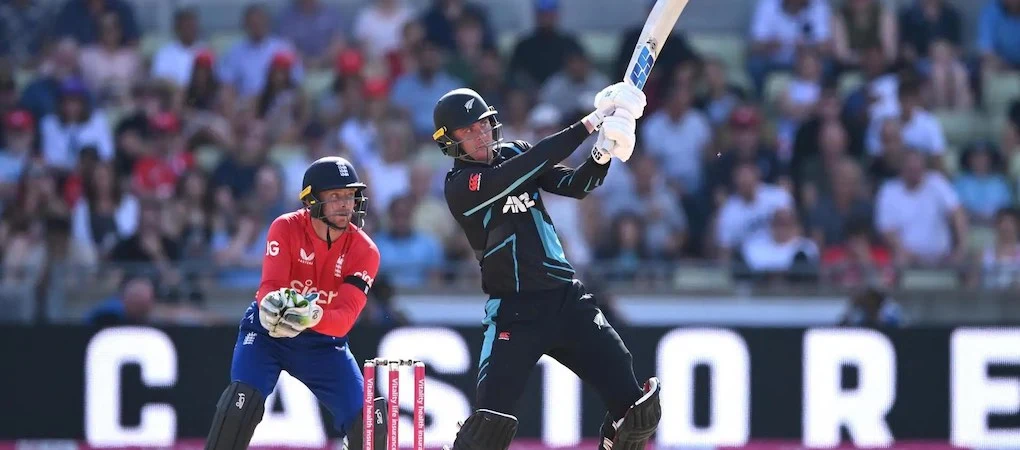
It's a fun hobby betting on one of the sport's most mass-favored ones worldwide, yet for newcomers to the betting culture, the volume of slang and jargon appears daunting. Today's primer strives to de-mythify basics in plain simple English - the term standard gambling vernacular, slang cricket, and colloquials. Regardless of whether you're placing a wager on a five-day Test, a fast-paced One Day International (ODI), or a scorching Twenty20 (T20) match, knowing these phrases will have you soaring high.
Introduction to Cricket Betting
Cricket betting involves wagering money on various outcomes in a cricket match or series. You can bet on the overall winner, total runs scored, or individual player performances. Bets can be placed pre-match (before the game starts) or in-play (during the game), often called live betting.
Cricket comes in three main formats, each with its own betting quirks:
- Test Matches: Test matches last up to five days and are the longest format. Common bets include match winner, draw, and individual player performances.
- One Day Internationals (ODIs): Each team bats for a maximum of 50 overs (300 legal deliveries), combining aggressive play with tactical decisions.
- Twenty20 (T20): The shortest of the three forms, 20 overs per side, with its unpredictability and high-scoring cricket.
The format is important, because it will determine what types of bets you are able to place and how you may play.
Key Betting Terms
Here are the foundational terms you’ll encounter in cricket betting:
-
Odds represent the probability of an outcome and determine your potential winnings:
- Fractional Odds (e.g., 5/1): Bet $1, win $5 profit (plus your $1 back) if successful.
- Decimal Odds (e.g., 6.00): Bet $1, get $6 total (stake + profit).
- Moneyline Odds (e.g., +500): Bet $100, win $500 profit if it hits.
- Stake: The amount of money that you wager on a bet.
- Payout: The total amount returned to you if your bet wins, including your original stake.
- Bookmaker (Bookie): The business or person that takes your bet and sets the odds.
- Betting Exchange: Where you wager against other people, not a bookmaker, usually with better odds.
- In-Play Betting (Live Betting): Wagering on a match as it happens, so you can react to the game in real-time.
- Accumulator (Parlay): A single bet combining multiple selections; all must win for a payout, but it offers higher potential returns.
- Each-Way Bet: Consists of two parts: a 'win' bet and a 'place' bet (e.g., finishing in the top three). If the selection wins, both parts pay; if it only places, only the place part pays.
- Dead Heat: When two or more selections finish tied. The stake is divided proportionally, so your payout is reduced accordingly.
- Laying a Bet: Betting against a particular outcome on a betting exchange (e.g., betting that a team will NOT win). You profit if that outcome does not happen.

Cricket-Specific Betting Terms
Cricket has unique bets tied to its rules and structure. Here are the big ones:
- Match Betting: Betting on the winner of a single match. For Test matches, betting on a draw is also recommended.
- Series Betting: Wagering on which team will triumph in a series (such as a 3-1 victory in a five-match Test series).
- Top Batsman/Bowler: Placing bets on who will score the most runs or get the most wickets in a match or series.
- Over/Under: Predicting whether a statistic (e.g., total runs) will be over or under a set line.
- Man of the Match: A wagering option on the recipient of the best player award in the match.
- First Wicket Method: Prediction of how the first wicket is taken—caught, bowled, leg before wicket (LBW), etc.
- Handicap betting: Adds a run advantage or disadvantage to a team to even it out.
- Maiden Over: Betting on whether a bowler will bowl six consecutive balls (an over) without allowing a run.
Cricket Betting Slang
Experienced bettors use slang that might confuse newcomers. Here’s a rundown:
- Bagging a Winner: Nailing a successful bet.
- Chasing Losses: Betting more to recover money you’ve lost—usually a bad idea.
- Dead Cert: A wager which is considered to be guaranteed (although never anything is).
- On the Nose: Wagering straight-up on a victory, no additional stipulations.
- Skin in the Game: Having something at stake from your own pocket.
- Sweating a Bet: Anxiously waiting out a match with your bet still live.
- Value Bet: A bet where the odds placed are higher than the real probability of the result, which is a profitable probability.
Examples to Make It Come Alive
- Odds and Payout: You bet $10 on a team at 3/1 odds. They win, so you get $30 profit + your $10 stake = $40 total.
- Accumulator: You bet on three T20 matches—Team A, Team B, and Team C to win—at combined odds of 10/1. Stake $5, and if all win, you get $50 profit + $5 back = $55.
- In-Play Betting: In an ODI, a team’s at 100 runs after 20 overs. You bet “over 300” total runs at 2.00 odds, reacting to a strong batting performance.
- Top Batsman: You bet $20 on Player X to score the most runs in a Test match at 4/1. He does, earning you $80 profit + $20 stake = $100.
Tips for Newcomers
Understanding terms is just the start. This is how to bet more intelligently:
- Research: Consider team form, player stats, pitch conditions, and past performances.
- Start Small: Practice with low stakes while you figure things out.
- Stay Disciplined: Keep a budget and do not chase losses.
- Understand the Format: T20 is free-flowing and unpredictable; Test matches are patience-rewarding.
- Leverage In-Play: Watch the game live to spot trends—like a bowler struggling—before betting.
